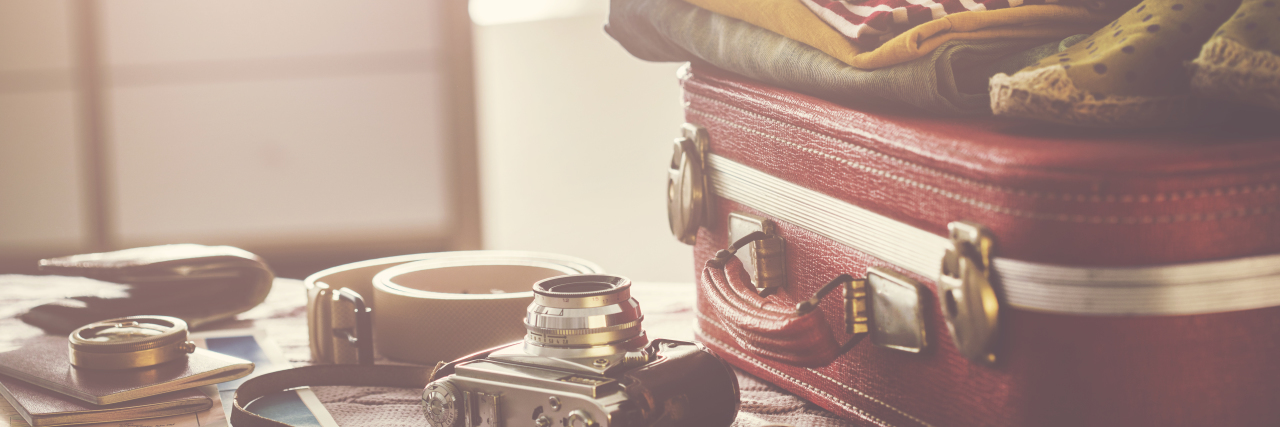Ever since I was a little girl, I’ve always loved to travel and explore new places. I have been traveling for longer than I can remember because we used to visit my grandparents often, both sets who lived far away from my birth place of Winnipeg, with my maternal grandparents living in New Jersey and the others living in Switzerland.
My parents, who are not hard of hearing, have traveled throughout their lives, but traveling and going on vacations with me, their hard of hearing daughter, was new territory. Throughout my childhood, we figured out tricks to make it easier for me to navigate traveling and going on vacation with hearing loss.
Here are three tips and tricks for traveling with hearing loss that have worked for me.
1) Prepare for flights and “airplane ear.”
Of course, traveling by plane isn’t the only mode of transportation, but it’s one commonly used for long-distance travel. I was a little kid when I first got annoyed by how my ears seemed to get “clogged” from the air turbulence, leaving me to hear very little or nothing at all. As I do not known American Sign Language or any other form of sign language, this left me with no form of communication at all. When I was 10, my audiologist suggested I chew gum when the plane took off to prevent “airplane ear.” Fortunately, this worked for me, but other methods to deal with airplane ear (possible hearing loss while flying) include reserving a seat as far away from the engine as possible and wearing headphones.
2) See what accommodations can be given for activities.
While not every single activity is accessible as it should be, it’s always a good idea to ask if accommodations could be given for activities. For example, I have been a huge musical theater fan for as long as I can remember and loved and continue to love seeing Broadway musicals. As my mother’s side of the family lived in New Jersey, we’d often take a day trip (or more) to New York City to see a Broadway production. I often found myself struggling to understand what performers were saying, but then I learned that some Broadway shows have closed captioning options for guests. For example, at Dear Evan Hansen, a young audience member with hearing loss was “given a small tablet and was told that the actors’ lines would appear on the tablet as they were spoken.” These tablets are a great way to make musicals and plays more accessible for deaf and hard of hearing audience members.
3) Have spares and a backup plan for any medical devices.
If you have medical devices like hearing aids, it’s a good idea to pack batteries and backup hearing aids/processors if you have them. Once when traveling in Switzerland, the batteries for my hearing aids died, and we realized we did not pack spares. This led to us going on a wild goose chase to find a place in my dad’s small hometown in Switzerland that had hearing aid batteries. If you’re going on a long trip, it may also be a good idea to locate any audiologists that are nearby in case an emergency happens, like if you lost a hearing aid and don’t have a spare due to how expensive some models can be.
I hope these tips are helpful when it comes to traveling with hearing loss. Safe travels!
Getty image by Seb Ra.

